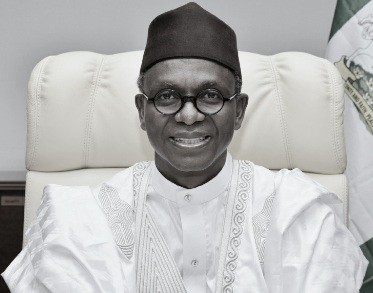Insecurity In Northern Nigeria And Possible Solutions by Oluka Emmanuel.
Written by: Oluka Emmanuel Chukwuemeka My heart remained troubled even at the point of writing this essay. Initially, I had chosen to write creatively on one of the topics, “Caught Red-Handed”; but the more I tried to put down the words caressing my thoughts, the more I felt a strong force keeping me on restrain. This was because I knew the situation in the country at the moment was tensed. I knew the audience will always be in the lookout for something to laugh about; something to help douse the tension occasioned by the avalanche of mishaps the year 2020 brought. So, I felt a story-telling creative content coated with bouts of humour and adventure in the topic, “Caught Red-Handed”, would do justice and oblige their expectations. But, here I am, making a U-turn to write on the recurring spate of insecurity in Northern Nigeria. Instructively, one thing provoked my making this U-turn. The provocation was premised on the recent Zabarmari rice farm massacre in Borno state. The country woke up Saturday morning to the gory news of the slaughter of over 40 farmers around two villages in Jere Local Government Area of Borno State by the Boko Haram terrorists. It was revealed that the farmers were waylaid on their way to their rice farms which they were harvesting. The attack took them by surprise. Reports say other farmers were also whisked away by the insurgents. This is one out of numerous bizarre stories bothering on insecurity which have dotted the landscapes in the North. From the decade-long Boko Haram insurgency in the North-East, to rural banditry in the North-West, to herdsmen militancy in the North-Center; the story remains unabated. Bandits terrorize communities with impunity, setting up strong territories in the hinterlands and on the frontiers from where they launch coordinated attacks. Travellers on major highways particularly the Abuja-kaduna road have also witnessed fair share of abductions and even deaths. The North-Central Benue state have been inundated with a litany of strikes ranging from the Zaki Biam invasion in 2001 to the present farmers’- herders’ clash ravaging governor Ortom’s current administration. A report funded by the United States Agency for International Development (USAID) say an estimated 7,000 Nigerians have died between 2015 and 2019 in the North-Central states of Benue and Nasarawa alone. In all these scenarios, it shows Northern Nigeria have thus become unleashed with uninhibited violence making it a killing arena with graves littered within its spaces. But what have given rise to these insecurities? Inasmuch as media reports have implicated the porous nature of the country’s borders, plus the religious and ideological discontent as leading factors propelling the security conflicts in Northern Nigeria, Yakubu Dogara, the former speaker of the house of reps takes a different stance. While addressing the North in a speech delivered at a recent Northern Security meeting in Kaduna, he said, “We are where we are because of illiteracy, unemployment and poverty”. In a mathematical equation he propounded, he posited that, “Illiteracy + Unemployment + Poverty = Insecurity”. Quoting him further, he said, “The North is on fire ignited by us either by our actions or by what we permit or allow”. He actually may not be far from the truth because, out of the 60 years the country acquired independence, Northern Nigeria has taken a staggering chunk of over 40 years of leadership; yet, the region have been greeted with statistics of illiteracy and extreme poverty not ranking in their favour at all. This reveals that the region have had a misplacement of leadership, with leaders failing to put the interest of their people at the epicenter of their various administrations; hence, unable to address the intricate socio-cultural, political and economic challenges of the region. The absence of basic human securities like food, shelter, clothing and education, breeds opportunity for the citizens to be exploited and recruited by nefarious groups like Boko-haram and other fake militia groups. This in fact, summarizes what have given rise to the spate of insecurities in the North. The Consequences and Implications The truth is that insecurity in the North is growing in geometric proportion and sophistication; and it’s becoming quite foreboding for the region. And if the scourge is allowed to linger, the regional description of the insecurity will get blurred over time; hence, making it pretty unpredictable in its propensity to spread to parts of the south and destroy the entire country at large. This will end up justifying an age long Igbo adage which translates to mean, “Whenever the eyes start to cry, the nose joins the cry afterwards”. One major consequence of the security situation ravaging the North is that, the Sustainable Development Goals (SDGs) of United Nations (UN) of achieving food security, ending poverty, hunger, and promoting sustainable agriculture by the year 2030 is in danger. Farmers no longer have the physical fitness and psychological disposition to work without fear in their farms. Now, is the period of harvesting major Nigerian cereal crops like rice, maize, sorghum, millet; these are the food that can be kept for close to 10 – years in silos if they are properly processed and preserved; unlike the roots and tuber crops that may not last more than a year. In that case, post-harvest losses will be on the increase. When rice for instance, is ripe for harvest and you don’t harvest for fear of insurgency, then, after some time, these grains will start dropping and left to the mercy of pests, making the possibility of achieving UN’s food security a mirage. Transportation becomes a problem too, because, the roads are also insecure; and so, carrying harvested produce from the farms to the consumption centers, becomes a herculean task. This brings scarcity and makes the price of some of these essential commodities to skyrocket. This is why onions have become a scarce and highly sought after produce in the market. One can only imagine the taste of stew without onions in the upcoming Christmas


